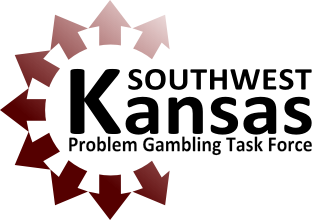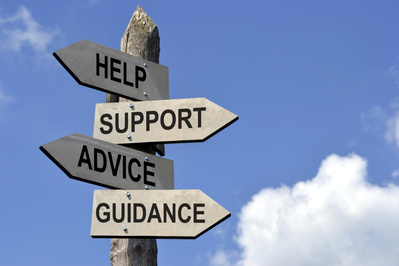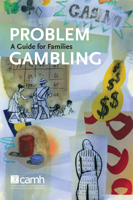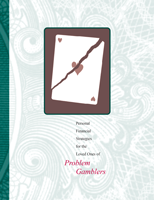Getting SupportLearning how to cope with, and help someone who has a gambling problem can be very difficult. You may deal with a number of negative responses, from denial to resistance. Taking care of yourself, and having your own support system is crucial.
Take Care of YourselfHelping someone who has a gambling problem creates extra stress and pressure for you. It is important to look after yourself because if YOU are feeling tired and run down as a result of trying to help, it won't be helpful to either one of you in the long run.
|
Protect Yourself and Your Family
Problem gamblers have difficulty dealing with money. Here are some things you can do to protect yourself and those around you:
- Take control of finances for the immediate future.
- Limit the problem gambler's access to cash.
- Organize direct debit for bills, mortgages and other regular payments.
- Create a realistic budget and keep good records of all financial transactions
- Keep tabs on the mail.
- Avoid inheriting the problem gambler's debt. Remove your name from joint accounts.
- Do not sign anything you don't understand or are not prepared to pay for.
- Do not lend credit cards, share pin numbers or leave that information where it can be easily accessed.
- Visit with a financial counselor to find out how you can protect your finances and assets.
Talk With Others
Helping a problem gambler is difficult, but it's even worse if you try to do it alone. Visiting with others, especially those who are familiar with problem gambling issues, will help to give you strength and encouragement when you encounter negative responses, denial, resistance, and more from a problem gambler who may not want to quit. Consider the follow:
- Call our helpline at 800-522-4700 right now to visit with a trained professional who can answer your questions. The call is free; they know the warning signs and can help you determine if someone you care about is at risk; they can explain treatment options and reimbursement programs; and they can provide referral and contact information for certified gambling counselors near year.
- Attend a Gam-Anon® meeting. Gam-Anon® is a fellowship of men and women who have been affected by the gambling of a loved on. They know and understand the worry and anxiety you may be experiencing.
- Even visiting with someone you trust, such as a close family member, friend or counselor can be really helpful in alleviating the stress of carrying this burden alone. Talk to someone who you know will not judge you or the person who has a gambling problem; they may be able to provide useful advice and a different perspective on the situation.
Set Healthy Boundaries
Spend some time thinking about your own limits of what is acceptable and unacceptable, and the level of involvement you are willing to commit to going forward. Once you are clear about your own boundaries, discuss and negotiate a plan with the person who has a problem with gambling that includes what each of you is willing to do. Consider visiting with a professional gambling counselor to get help with making decisions and/or developing the plan.
Learn More
Problem Gambling: A Guide for FamiliesPrepared by the National Endowment for Financial Education (NEFE) and the National Council on Problem Gambling, this handbook suggests ways to deal with personal financial issues due to gambling before they become a major financial problem . . . or it can help you recover financially if you already have serious money problems.
|
Personal Financial Strategies for the Loved Ones of Problem GamblersDesigned to help families deal with personal financial issues due to a loved one's problem gambling. Covers signs of problem gambling. Strategies include budgeting, shifting financial control to a nongambler, repaying debts, avoiding bankruptcy, and investing.
|



